In pictures
Nirjhara: a hideaway haven in Bali
On the southwest coast of Bali, Nirjhara, a new luxury hideaway, is preparing to launch in early 2021. With a strong focus on sustainability and eco-friendly practises, the resort is designed to have as little impact on the surrounding environment as possible. We find out more.
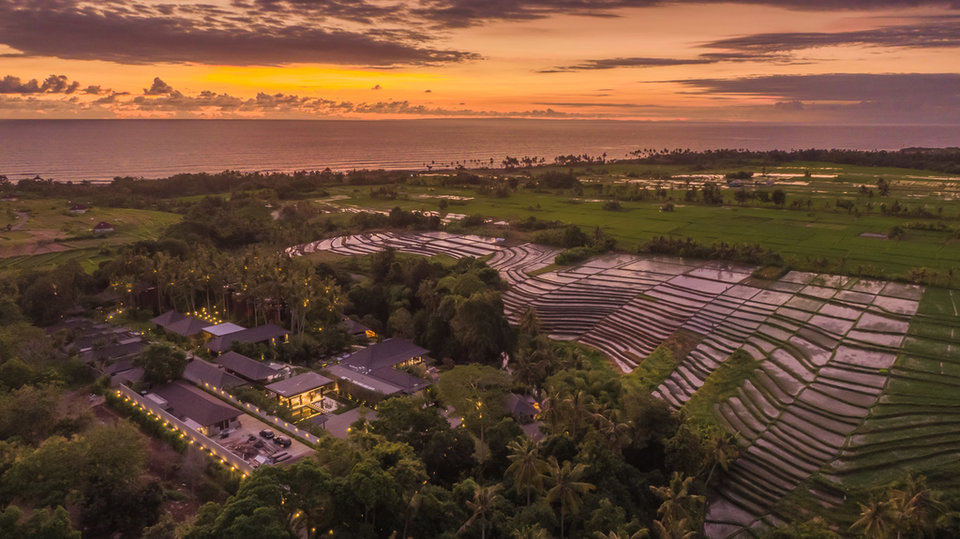
W
hat started as an air mattress on three former schoolmates’ living room floor has since blossomed into a hospitality giant, valued in excess of $30 billion.
Over the last decade, Airbnb, which owns no actual rental real estate, has sought to disrupt the traditional hotel industry. By and large, it has been successful — last year, according to data from Second Measure, Airbnb generated more money in the United States than Hilton, the world’s second largest hotel group, andnarrowed Marriott’s lead over the market. As such, Airbnb now accounts for 20% of consumer lodging spending in the US market and continues to grow at a faster rate than the world’s three largest hotel chains.
Airbnb’s growth has had a significant impact on hotel revenues. Researchers from Florida State University, Boston University, and Texas A&M University recently found that for every 1% increase in the number of Airbnb properties available in a market, the industry saw average revenue per room (RevPAR) decrease by 0.02%. In New York, for instance, every 1% increase in available Airbnb properties saw hotel occupancy dip by up to 0.1%.
Airbnb’s success is largely down to the value for money that it offers, with 70% of guests saying they book homestays to save money according to Consumer Reports. Likewise, 58% said they were seeking unique accommodation, while 53% wanted accommodation that offered access to a kitchen.
Despite that, studies show that Airbnb is more of a threat to the industry’s growth than its existence. While some 60% of leisure travellers who stay at both hotels and Airbnb’s say they prefer home rentals over hotel rooms, 68% of business travellers say the opposite, according to Clever Real Estate.
The same Consumer Reports survey found that safety concerns put 55% of guests off booking homestays, while 40% didn’t want to interact with the homeowner.
A short distance away from Bali’s iconic Tanah Lot Temple, the Nirjhara luxury resort offers an eco-friendly hideaway with spectacular views of the cascading waterfall after which it is named and architecture that blends contemporary design and modern comfort with authentic local influence.
The Bolder. Credit: The Bolder
The 25 suites and villas that make up the resort have been carefully designed to minimise any environmental impact and seamlessly blend into the surrounding forest and rice paddy fields. To achieve this, the exteriors were created using materials that reflect the natural surroundings including reclaimed hevea wood, natural stone and traditional sirap roofing.
Manshausen. Credit: Thomas T. Kleiven | VisitNorway.com
Inside, this ‘natural’ and eco-friendly concept continues through the use of an earthy colour palette. Indonesian design is also celebrated throughout the interior, where guests will find traditional woven furniture handcrafted by local designers, coconut panelling and wood carving, as well as contemporary art pieces from local artists.
Flokehyttene. Credit: Holon Arkitektur
The menu at Nirjhara’s Ambu restaurant reflects the sustainable and cultural ethos of the resort. Not only does the kitchen offer an array of dining options that incorporate local cuisine, as part of its 'slow food’ approach to dining, 95% of the restaurant’s ingredients are sourced from the hotel’s own vegetable garden, neighbouring farms and trusted local suppliers.
Birdbox Fauske. Credit: Birdbox Fauske
Alongside its range of guest villas and suites, Nirjhara has four treatment rooms, a fully equipped fitness centre and The Shala, a riverside bamboo-clad yoga pavilion overlooking the waterfall, designed by award-winning eco-architects Ibuku.
Tungestølen. Credit: Snøhetta
Extensive research was undertaken to make energy use at Nirjhara as efficient as possible. In each suite, expert insulation has been installed to minimise the use of air conditioning, whilst hot water is heated by solar panels.
Tungestølen. Credit: Snøhetta
Credit (all images): Nirjhara
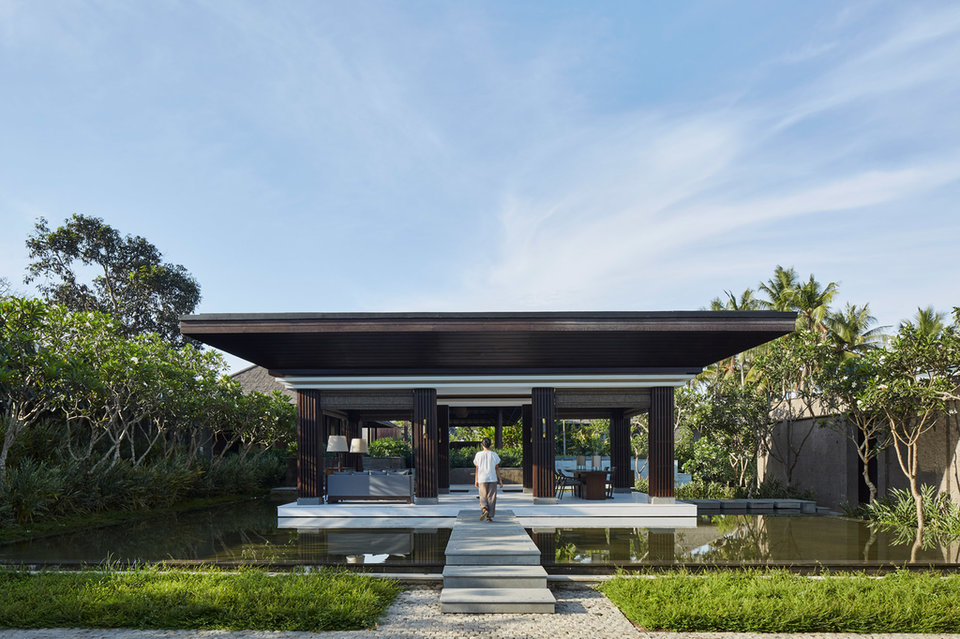
The Bolder. Credit: The Bolder
A short distance away from Bali’s iconic Tanah Lot Temple, the Nirjhara luxury resort offers an eco-friendly hideaway with spectacular views of the cascading waterfall after which it is named and architecture that blends contemporary design and modern comfort with authentic local influence.
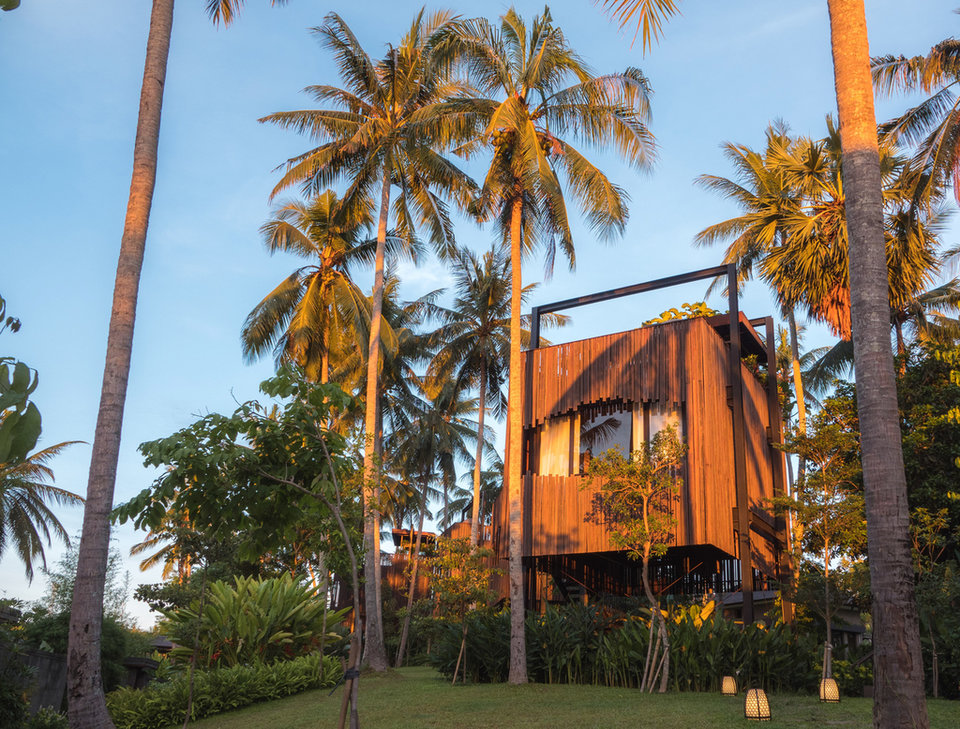
Manshausen. Credit: Thomas T. Kleiven | VisitNorway.com
The 25 suites and villas that make up the resort have been carefully designed to minimise any environmental impact and seamlessly blend into the surrounding forest and rice paddy fields. To achieve this, the exteriors were created using materials that reflect the natural surroundings including, reclaimed hevea wood, natural stone and traditional sirap roofing.
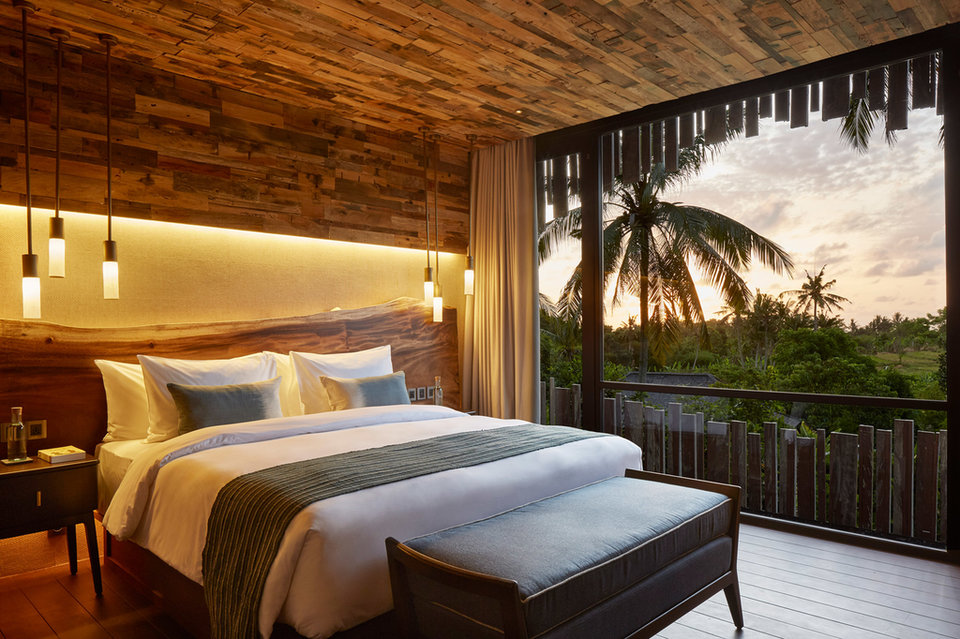
Flokehyttene. Credit: Holon Arkitektur
Inside, this ‘natural’ and eco-friendly concept continues through the use of an earthy colour palette. Indonesian design is also celebrated throughout the interior where guests will find traditional woven furniture handcrafted by local designers, coconut panelling and wood carving, as well as contemporary art pieces from local artists.
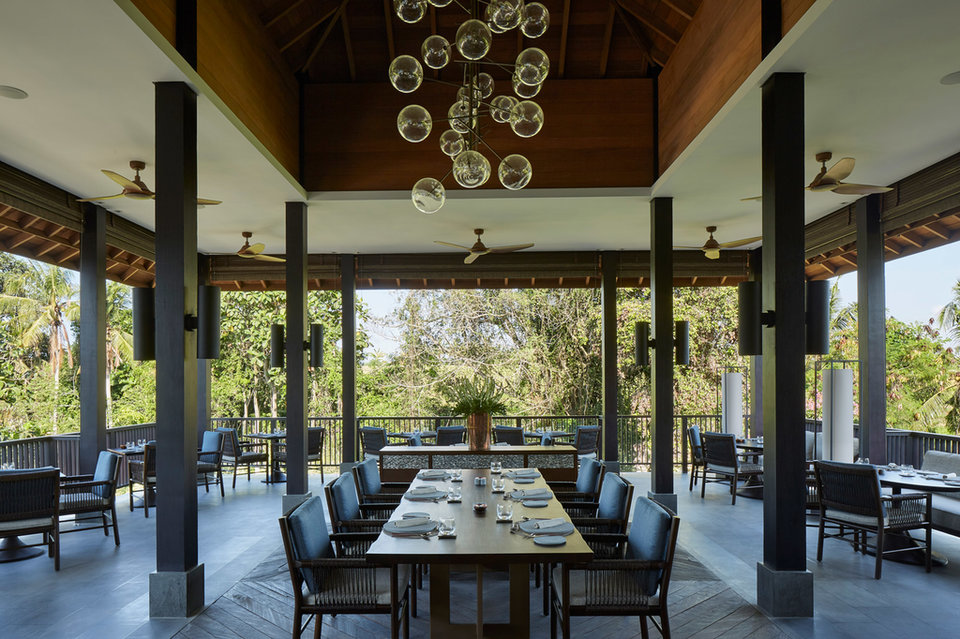
Birdbox Fauske. Credit: Birdbox Fauske
The menu at Nirjhara’sAmbu restaurant reflects the sustainable and cultural ethos of the resort. Not only does the kitchen offer an array of dining options that incorporate local cuisine, as part of its 'slow food’ approach to dining, 95% of the restaurant’s ingredients are sourced from the hotel’s own vegetable garden, neighbouring farms and trusted local suppliers.
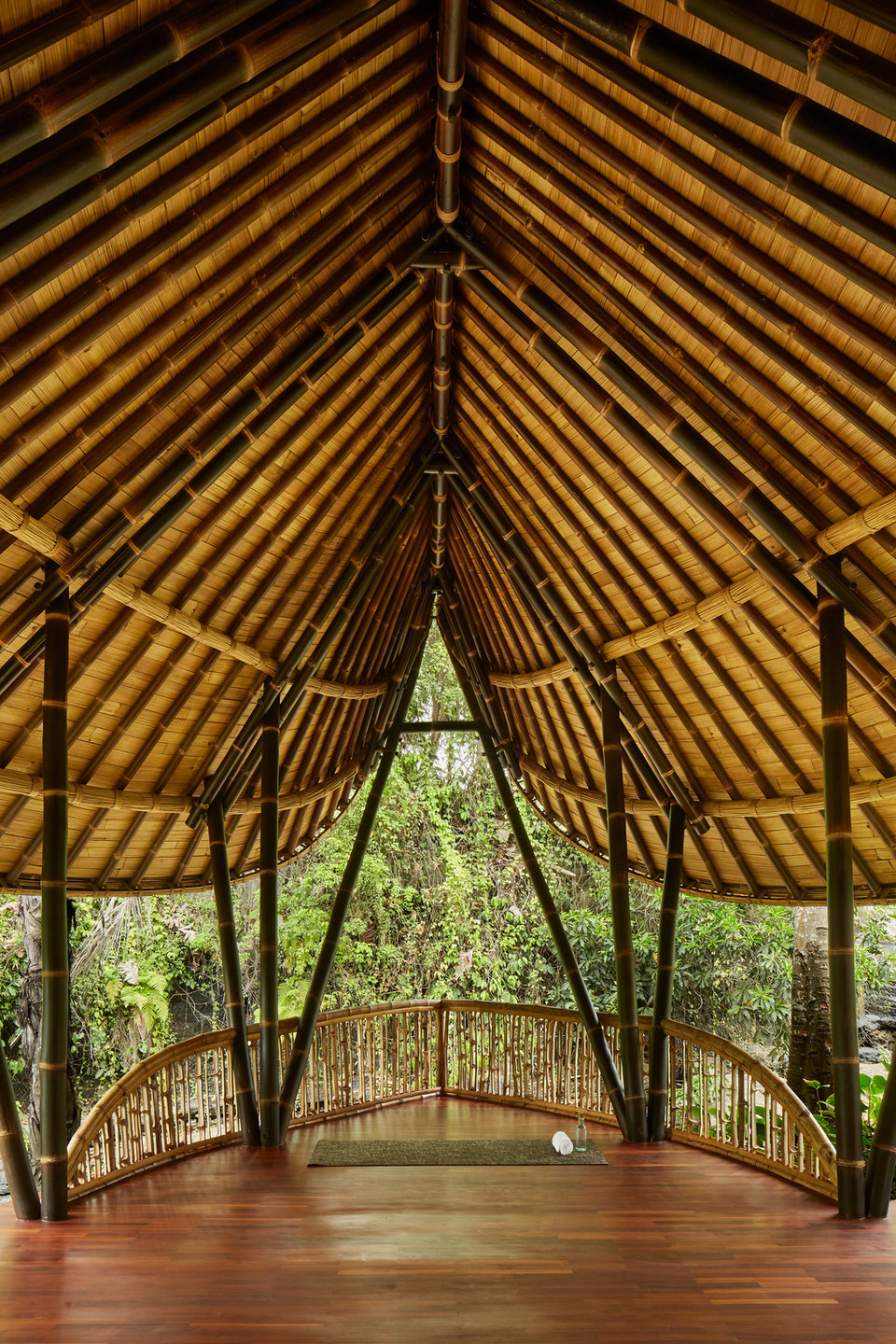
Tungestølen. Credit: Snøhetta
Alongside its range of guest villas and suites, Nirjhara has four treatment rooms, a fullyequipped fitness centre and The Shala, a riverside bamboo-clad yoga pavilion overlooking the waterfall, designed by award-winning eco-architects Ibuku.
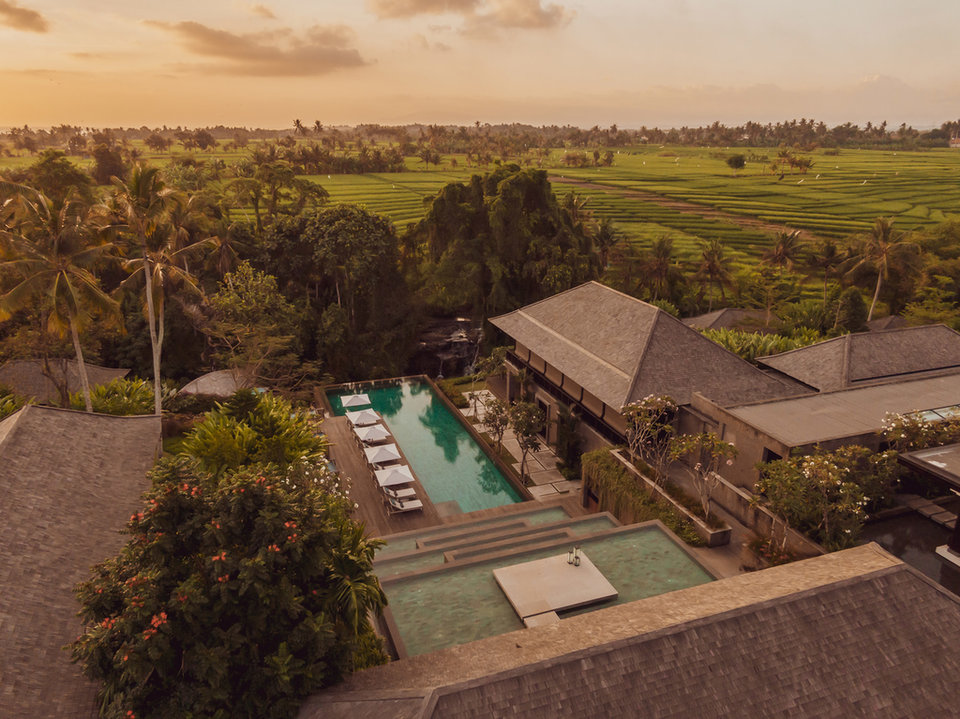
Tungestølen. Credit: Snøhetta
Extensive research was undertaken to make energy use at Nirjhara as efficient as possible. In each suite expert insulation has been installed to minimise the use of air conditioning, whilst hot water is heated by solar panels.